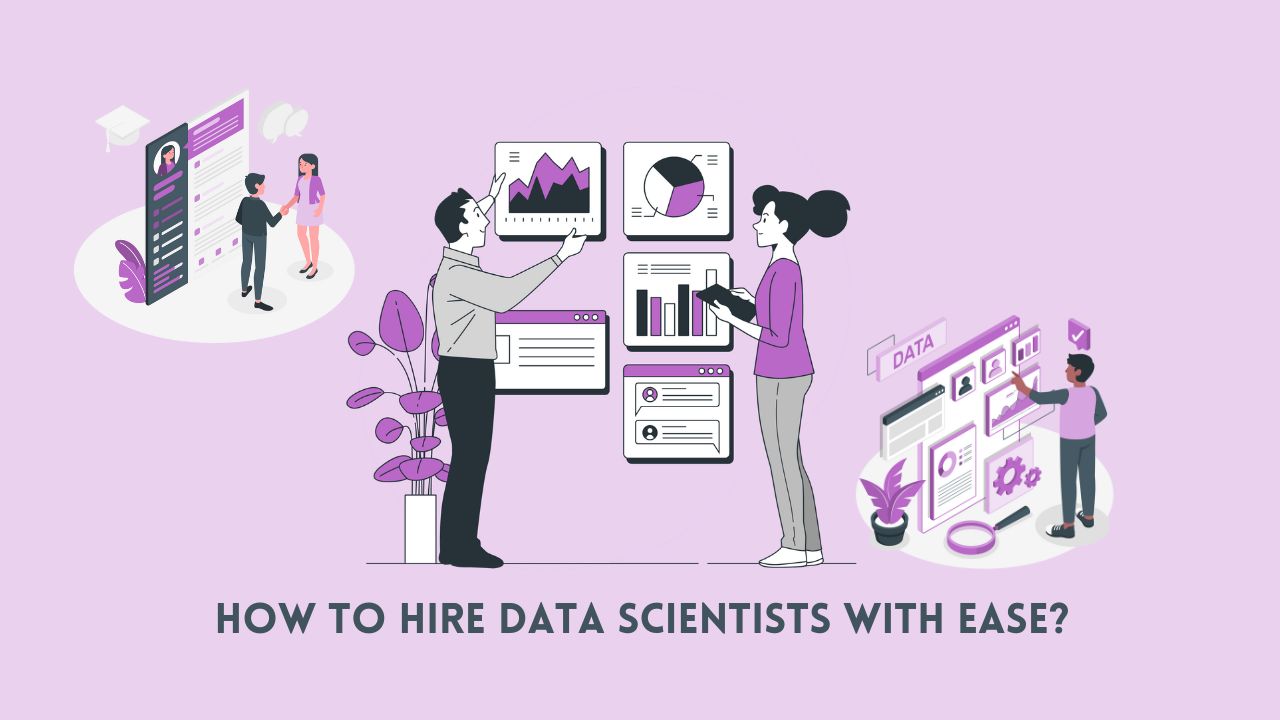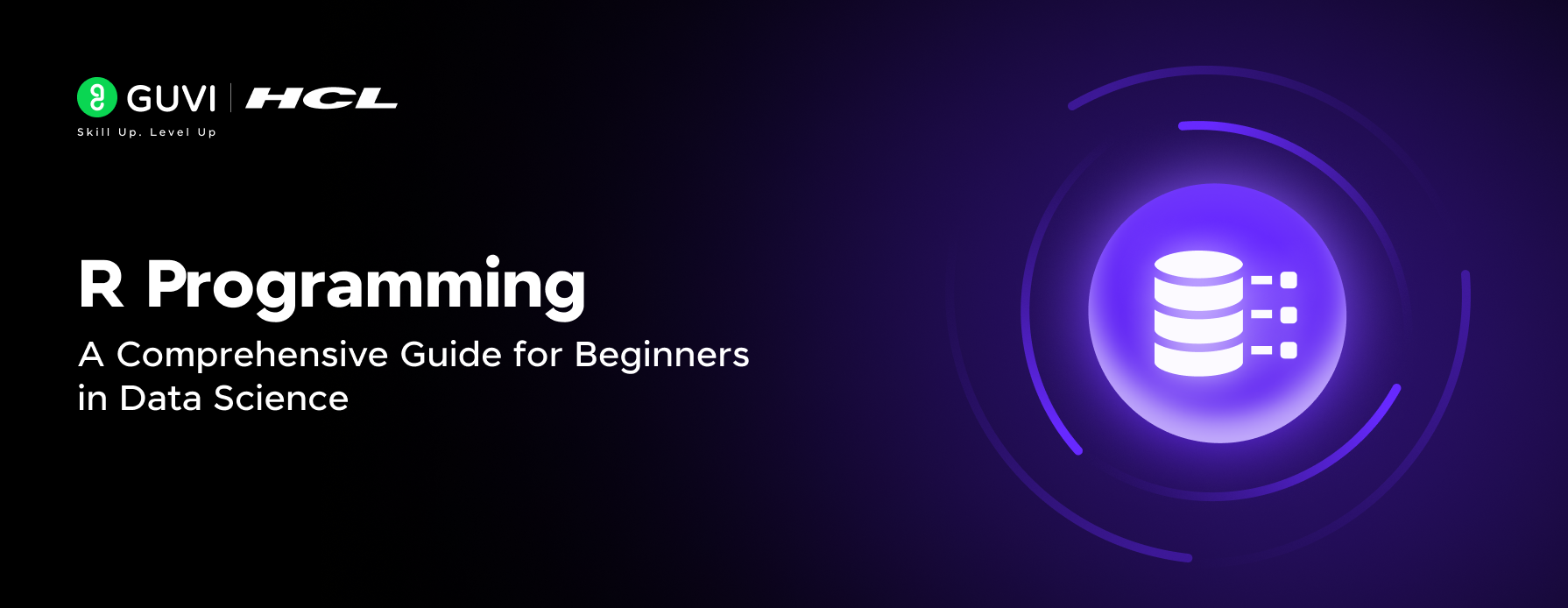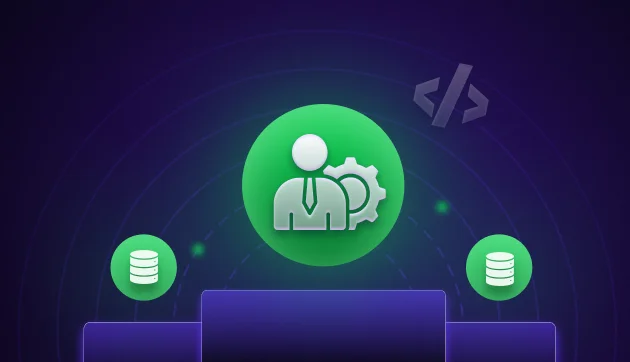![Importance of Data Science in 2025 [A Quick Guide] 1 Post thumbnail](https://www.guvi.in/blog/wp-content/uploads/2024/07/Importance-of
Data-Science-in-2025
A-Quick-Guide.webp)
Importance of Data Science in 2025 [A Quick Guide]
Apr 01, 2025 6 Min Read 2409 Views
(Last Updated)
Out of all the fields of study that are booming these days, data science is one of the prominent studies that almost everyone wants to have a try on.
But why is it so popular? What is the importance of data science in our regular life? Is it that good that companies are hiring a bunch of data scientists every year? The answers to these questions lie in this article.
By the end of this article, you will have answers to the most asked questions, especially regarding the importance of data science. So, buckle up and sit tight as you are about to go on an invaluable journey!
Table of contents
- What is Data Science?
- Importance of Data Science in the Current World
- Exponential Data Growth
- Advancements in AI and Machine Learning
- Business Optimization
- Competitive Advantage
- Key Applications of Data Science in Day-to-day Life
- Skills and Tools for Data Scientists
- Tips to Succeed in Data Science
- Understand the Basics
- Hands-On Practice
- Learn to Clean Data
- Master Data Visualization
- Explore Machine Learning
- Stay Updated
- Develop Soft Skills
- Build a Portfolio
- Conclusion
- FAQs
- Why is Data Science considered the "oil" of the 21st century?
- What industries benefit the most from Data Science?
- .3. What is the significance of Big Data in Data Science?
- What skills are essential for a career in Data Science?
What is Data Science?
![Importance of Data Science in 2025 [A Quick Guide] 2 What is Data Science?](https://www.guvi.in/blog/wp-content/uploads/2024/07/1-6.webp)
Before we go deep into understanding the importance of data science, let us first understand what data science basically is!
Data Science is the process of using data to help you gain insights and make better decisions. It combines fields like statistics, computer science, and specific domain knowledge to collect, analyze, and interpret large amounts of data.
By applying techniques like machine learning and data visualization, Data Science helps you understand patterns, make predictions, and solve complex problems, turning raw data into valuable information that you can use in various aspects of your life and work.
This is what data science is and understanding this helps you understand the importance of data science much easier.
Importance of Data Science in the Current World
![Importance of Data Science in 2025 [A Quick Guide] 3 Importance of Data Science in the Current World](https://www.guvi.in/blog/wp-content/uploads/2024/07/2-6.webp)
At this age and time, the importance of data science is so crucial as every business relies heavily on data for its survival.
So, it is mandatory that you should know about Data Science and its functionalities before understanding the importance of data science. If you don’t know it yet, consider enrolling in a professionally certified online Data Science Course that teaches you everything and helps you get started as a data scientist.
Now, let us understand the importance of data science in our current technology-driven world:
1. Exponential Data Growth
In this current age, the importance of data science can be best explained through the sheer amount of data generated daily. Think about all the photos, videos, texts, and interactions happening on social media every second.
Add to that the data from smart devices like your smartwatch, home assistants, and even your refrigerator! This explosion of data is often called “Big Data,” and it’s far too vast for traditional methods to handle.
Here’s where the importance of data science comes in. Imagine trying to find a single piece of information in a gigantic library with no catalog system. Impossible, right?
Data Science acts like a super-smart librarian, organizing, categorizing, and making sense of all this data so that we can find what we need and use it effectively.
2. Advancements in AI and Machine Learning
You’ve probably heard about Artificial Intelligence (AI) and Machine Learning (ML), they sound like sci-fi stuff, but they’re very real and very now.
AI and ML are like the brains behind Data Science. They help computers learn from data, make predictions, and even make decisions without being explicitly programmed for every task.
For example, ever wondered how Netflix knows what shows you might like or how your email filters out spam? That’s AI and ML at work.
In our digital age, these technologies are more advanced than ever, making our lives easier and businesses smarter. When learning about the importance of data science, you can’t possibly ignore AI and ML as they turn raw data into powerful insights and actions.
3. Business Optimization
If you run a business, you want to make smart decisions, right? Data Science helps companies do just that. It’s like having a crystal ball that gives you insights into what’s happening now and what might happen in the future. This is the reason why businesses can’t ignore the importance of data science when it comes to data management.
Let us imagine that you’re managing a retail store. Data Science can analyze sales data to tell you which products are popular, predict inventory needs, and even suggest the best times for sales and promotions.
This not only boosts your profits but also ensures your customers are happy and keep coming back. This is a simple example to prove the fact that the importance of data science is not only for large-scale businesses but for small-scale as well.
4. Competitive Advantage
In today’s world, data is the new gold. Companies that can utilize the importance of data science have a significant edge over their competitors. Data Science turns this raw gold into valuable insights.
Think about it like this: if you and your competitor are both selling similar products, but you understand the importance of data science and use it to understand customer preferences, optimize your supply chain, and personalize marketing, you’re going to be way ahead.
In this current age and time, businesses that don’t leverage Data Science are at risk of falling behind.
If you are intrigued by the world of data science and want to become a data scientist but don’t know where to start, here is a complete data scientist roadmap to get you started!
Key Applications of Data Science in Day-to-day Life
![Importance of Data Science in 2025 [A Quick Guide] 4 Key Applications of Data Science in Day-to-day Life](https://www.guvi.in/blog/wp-content/uploads/2024/07/3-6.webp)
Now that we covered the importance of data science, it is now time to see how it affects our real world and answer the question, what is the importance of data science in our everyday life?
Here are some of the domains that extensively use data science:
- Healthcare:
- Data Science is like a health partner. It helps doctors predict disease outbreaks, personalize treatments, and improve diagnostics. This means better healthcare for you and your loved ones.
- Finance:
- Banks and financial institutions use Data Science to detect fraud, manage risks, and make smarter investment decisions. So, your money is safer, and you get better financial services.
- Retail:
- Ever wondered how online stores always seem to know what you need? Data Science analyzes your shopping habits to personalize your experience, making shopping more enjoyable and efficient.
- Transportation:
- From self-driving cars to efficient logistics, Data Science makes transportation safer, faster, and more eco-friendly.
- Education:
- In the education sector, Data Science tailors learning experiences to fit individual needs, ensuring you or your kids get the best education possible.
These are just some simple instances to help you understand the importance of data science in our day-to-day life. But more than this, data science plays a prominent role in almost every field out there.
Skills and Tools for Data Scientists
![Importance of Data Science in 2025 [A Quick Guide] 5 Skills and Tools for Data Scientists](https://www.guvi.in/blog/wp-content/uploads/2024/07/4-4.webp)
It is imperative that by now, you might have started to take a liking to the field of data science, to boost that more, here is a quick glimpse at the skills and tools that you need to master for data science.
To become a Data Scientist, you need a mix of skills and tools. Here’s a quick rundown:
- Programming Languages:
- Python and R programming are essential baggage for Data Scientists. They help you clean, analyze, and visualize data.
- Python and R programming are essential baggage for Data Scientists. They help you clean, analyze, and visualize data.
- Statistical Analysis:
- Understanding statistics is crucial. It’s like knowing the rules of the game when you’re playing chess.
- Understanding statistics is crucial. It’s like knowing the rules of the game when you’re playing chess.
- Machine Learning:
- Learning algorithms and frameworks like TensorFlow and PyTorch help you build smart systems that can learn and improve over time.
- Learning algorithms and frameworks like TensorFlow and PyTorch help you build smart systems that can learn and improve over time.
- Data Visualization:
- Data Visualization Tools like Tableau and Power BI turn complex data into easy-to-understand visuals, much like turning raw ingredients into a delicious dish.
- Data Visualization Tools like Tableau and Power BI turn complex data into easy-to-understand visuals, much like turning raw ingredients into a delicious dish.
- Big Data Technologies:
- Technologies like Hadoop and Spark help handle massive datasets, ensuring you can work with Big Data without a hitch.
These are some of the basic skills and tools that you need to master if you are looking to become a data scientist.
Additionally, if you are just getting started on Python and want to learn more about it, check out –
Learn Everything About Python From Scratch
Tips to Succeed in Data Science
![Importance of Data Science in 2025 [A Quick Guide] 6 Tips to Succeed in Data Science](https://www.guvi.in/blog/wp-content/uploads/2024/07/5-3.webp)
You saw everything related to data science right from the importance of data science to the skills needed. Now it is time to understand how to succeed in data science!
Here are some tips to help you succeed in the field of data science.
1. Understand the Basics
Before diving into complex algorithms and tools, it’s crucial to have a strong grasp of the basics. Think of it like building a house; you need a solid foundation.
- Mathematics and Statistics: Data Science heavily relies on mathematical concepts, especially statistics. Brush up on probability, distributions, and statistical tests.
- Programming: Learn the basics of programming languages like Python or R. These are the primary tools you’ll use to manipulate and analyze data.
2. Hands-On Practice
Theory is essential, but the importance of Data Science lies in the practical field. The more you practice, the better you’ll get.
- Projects: Start with simple projects. Analyze a dataset to find trends, build a basic predictive model, or create visualizations. Websites like Kaggle offer datasets and competitions to practice on.
- Online Courses and Tutorials: There are numerous free and paid courses online. Platforms like Coursera, edX, and Udacity offer comprehensive Data Science courses that include hands-on projects.
3. Learn to Clean Data
Data cleaning might not sound glamorous, but it’s one of the most critical steps in Data Science. Think of it as preparing ingredients before cooking.
- Identify and Handle Missing Data: Learn techniques to fill in or remove missing data points.
- Remove Outliers: Outliers can skew your analysis. Understand how to detect and handle them.
- Standardize and Normalize: Ensure your data is consistent and scaled appropriately for analysis.
4. Master Data Visualization
Data visualization is like storytelling with data. It helps you communicate your findings effectively.
- Tools: Familiarize yourself with visualization tools like Matplotlib, Seaborn, Tableau, and Power BI.
- Principles: Learn the basics of good design. Make sure your visuals are clear, concise, and convey the message accurately.
5. Explore Machine Learning
Machine Learning (ML) is at the heart of Data Science. Start with the basics and gradually move to more advanced concepts.
- Algorithms: Understand different types of ML algorithms, such as linear regression, decision trees, and clustering. Know when and how to use them.
- Libraries: Get comfortable with ML libraries like Scikit-Learn, TensorFlow, and Keras. These tools simplify the implementation of complex algorithms.
6. Stay Updated
The field of Data Science is always evolving. Stay updated with the latest trends, tools, and techniques.
- Blogs and Journals: Follow Data Science blogs, research papers, and journals. Websites like Towards Data Science and Medium have articles written by industry experts.
- Webinars and Conferences: Attend webinars, workshops, and conferences. They are great for learning new skills and networking with professionals in the field.
7. Develop Soft Skills
Technical skills are important, but soft skills can set you apart.
- Communication: Learn to explain your findings clearly and concisely to non-technical stakeholders. Good communication ensures your insights are understood and acted upon.
- Problem-Solving: Data Science is about solving problems. Develop a mindset to approach problems methodically and think critically.
- Collaboration: Often, Data Science projects require working with cross-functional teams. Being a good team player can significantly enhance project outcomes.
8. Build a Portfolio
A strong portfolio showcases your skills and projects to potential employers or clients.
- Project Variety: Include a mix of projects that demonstrate your ability to handle different aspects of Data Science, such as data cleaning, visualization, and machine learning.
- Documentation: Clearly document your projects. Explain the problem, your approach, the tools you used, and the results. This helps others understand your work and thought process.
By following these tips and understanding the importance of data science, no matter if you are a beginner, you will still succeed in the world of data and big numbers!
If you want to learn more about the importance of Data Science in the real world, then consider enrolling in GUVI’s Certified Data Science Course which not only gives you theoretical knowledge but also practical knowledge with the help of real-world projects.
Explore and have a look into the Future of Data Science
Conclusion
In conclusion, understanding the importance of data science leads to driving innovation and efficiency across numerous industries.
By utilizing vast amounts of data, it helps businesses make informed decisions, enhances healthcare, improves financial security, and personalizes shopping experiences.
Understanding the importance of Data Science and utilizing it to the fullest can give you a significant edge in today’s data-driven world.
FAQs
Just as oil fueled the industrial revolution, data drives today’s technological and business innovations, making it a crucial asset in the modern economy.
Industries like healthcare, finance, retail, transportation, education, manufacturing, and agriculture significantly benefit from Data Science.
Big Data provides the large datasets necessary for Data Science to analyze and extract valuable insights that drive innovation and efficiency across industries.
Essential skills for a Data Science career include programming, statistical analysis, machine learning, data visualization, and domain expertise.


















![10 Impressive Data Visualization Project Ideas [With Source Code] 9 Data Visualization Project Ideas](https://www.guvi.in/blog/wp-content/uploads/2024/11/best_data_visualization_project_ideas_with_source_code_.webp)






Did you enjoy this article?